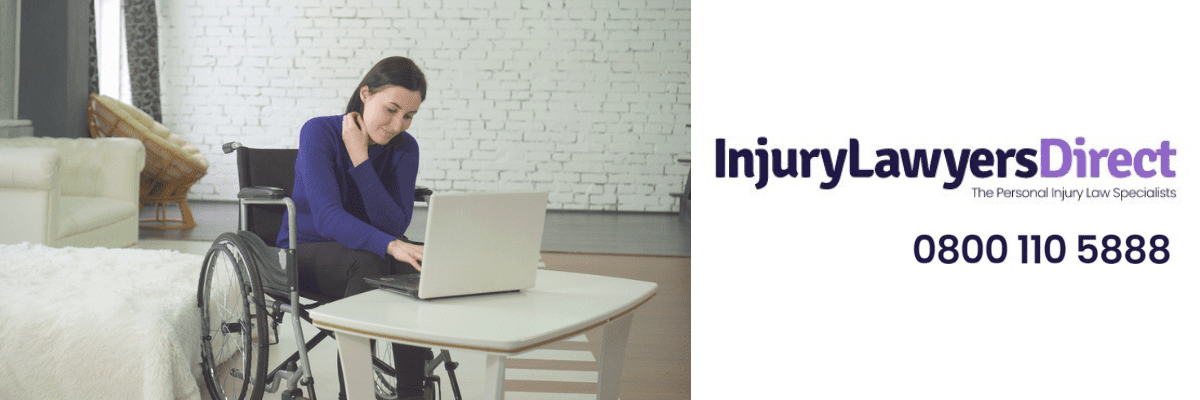Want to know your legal rights on medical malpractice?
Lots of information can be found online. But for someone with no previous experience in this area, lengthy blogs packed full of solicitor jargon and articles with complex legal guidance can be pretty confusing – especially at such an emotional and stressful time of your life.
It’s enough to put many people off taking legal action.
Here at Injury Lawyers Direct, one of our main goals is to provide our clients with straightforward, easy-to-digest advice. So let us break things down for you. If you’re looking to make a medical malpractice claim against the NHS, we’ve rounded up a few things you need to know.
Get to grips with the process, contact our solicitors and secure the financial justice you deserve.
8 facts about medical malpractice claims
Told on a need-to-know basis.
1. Medical malpractice is actually very rare
Legally, the term ‘medical malpractice’ is only used to refer to ‘NHS Never Events’ – which are extremely severe mistakes, deemed so serious and so avoidable, they should never happen.
These include incidents such as:
- performing surgery on the wrong person
- operating on the wrong body part
- accidentally leaving a surgical item inside the patient’s body
- accidental perforation of internal organs
- medication being administered via the wrong route
In most circumstances, your case will therefore be submitted as a ‘medical negligence claim’ instead.
2. You will need to prove fault
Not all medical errors count as medical negligence.
For a claim to be successful, you’ll need to prove the healthcare professional ‘breached their duty of care’ towards you as the patient – perhaps by providing a substandard quality of care or failing to comply with best practices. And that breach was the direct cause of the damage.
i.e. their actions (or inaction) directly caused the pain and suffering you have experienced.
Following a brief chat, our experienced medical malpractice solicitors can quickly determine whether your case classes as medical negligence and advise on your eligibility to make a claim.
3. You have 3 years to make a claim
The clock starts from the date you became aware someone was at fault.
There are some exceptions where this timeframe may be longer. For example, if the claimant has lost their mental capacity due to the injury, or if they were a child at the time of the incident. But there are also scenarios in which it could be shorter. So if you think you may be eligible, it’s best to get started ASAP.
4. NHS complaints and compensation claims are not the same thing
If you make an official complaint against the NHS, an investigation will be launched. You’re likely to get a letter of response with an apology, plus a little information about what’s being done to address the issue. Disciplinary action may even be taken. But you won’t get a penny of compensation.
For that, you’ll need to send a medical malpractice claim to NHS Resolution.
It’s possible to do this yourself, by sending a ‘Letter of Claim’ to the NHS Trust that was responsible for your care (further details on this can be found here). However, to ensure you get a fair payment for the suffering experienced, legal representation is typically recommended.
5. Claims can be made on a ‘no win no fee’ basis
That means you won’t be left out of pocket.
Most medical malpractice solicitors offer a free no-obligation consultation to assess your eligibility.
There are no upfront payments or unexpected bills with a ‘no win no fee’ claim. Your solicitor will simply keep a record of any costs incurred. If your claim against the NHS is successful, these costs will then be reimbursed by the NHS – and your solicitor is likely to deduct a small ‘success fee’ from your compensation (max 25%).
If the case is unsuccessful, they’re covered by an insurance policy taken out by your solicitor.
6. There are zero repercussions
Making a medical negligence claim won’t come back to bite.
It’s against the law for a healthcare setting to refuse treatment due to your claim, and any ongoing treatment won’t be delayed or affected. But having said that, you do have a right to ask for your care to be moved to a different doctor or service provider – if you’d prefer to have peace of mind.
There’s also no need to worry about taking money from the NHS budget.
Claims against the NHS are handled by NHS Resolution – a separate organisation with its own pot of money. Which means, you can #claimwithconfidence, knowing that getting what you deserve won’t directly affect the NHS.
7. Your claim is unlikely to go to court
If the NHS denies liability, court action may be required – but this is extremely rare.
Medical negligence solicitors hate the idea of a long legal battle just as much as you do. So when it comes to settling a claim and securing compensation, we always aim to achieve the best possible outcome – without coming face-to-face with a judge or causing any unnecessary stress.
You may be asked to attend a medical examination to assess your symptoms and their impact on your life. And we’ll need to gather as much evidence as possible to support your claim. But as for the courtroom? We aim to avoid it at all costs, prioritising negotiations wherever we can.
8. Most medical malpractice claims are successful
This is the bottom line.
Of the 13,551 claims received by NHS Resolution in 2022/2023, the number of claims that reached some sort of settlement was 13,499. This means that 99% of claims against the NHS were successful. And 51% of those resulted in the payment of damages (i.e. the claimant received compensation).
Timelines can vary depending on the complexity of your case. But on average, medical negligence claims currently take around 12-36 months to settle. And if you’re struggling financially in the meantime, interim payments can sometimes be arranged by your solicitor.

Start your medical malpractice claim today
Too many people are missing out on their rightful medical negligence compensation due to a lack of understanding and uncertainty about claiming against the NHS.
If a health professional has failed in their duty of care, and you’ve suffered physically or psychologically as a result, nothing should stand in your way of getting the financial justice you deserve – money that could help to aid your recovery and get your life back on track.
Here at Injury Lawyers Direct, we’re always on hand to offer support.
If you’re unsure about whether you should take legal action or still feel confused or daunted by the claims process, why not arrange to speak to a member of our NHS negligence team?
We can answer any questions, address any concerns you may have and advise on the eligibility of your case. Then, if you decide to go ahead, we can begin legal proceedings and oversee the entire medical negligence claim on your behalf.
To book a time and date for your consultation, simply give us a call on 0800 110 5888. Or if you prefer, pop a few details into our online form, and we’ll respond to your enquiry as soon as possible.

